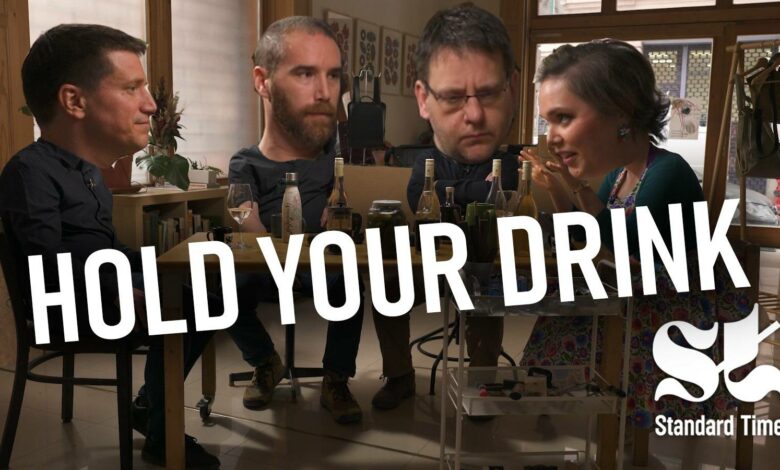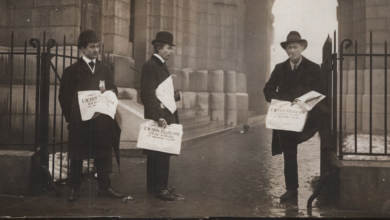Booze is a symptom, not the problem

The top 10 countries facing alcoholism globally are almost exclusively European. In 2019, 8.4 percent of the EU’s population aged 15 and older consumed alcohol every day. According to the World Health Organization, Europe has the highest proportion of drinkers and the highest intake of alcohol in the world.
Factors that lead certain people, or even certain populations to have alcohol issues vary from biological and environmental, to social and psychological. Europeans particularly may be more genetically predisposed to eating fatty foods and consuming alcohol due to a switch in what is called the galanin gene.
Social drinking habits across Europe carry significant weight as well. They inform the identities, economies, and cultures of many European societies. One study interestingly argues that it is not per capita consumption that influences alcoholism, but rather the cultural beliefs surrounding it. Societies that hold positive beliefs about liquor, mainly defined as ‘wet’ and Mediterranean, are less likely to face the same substance abuse problems as their ‘dry’ and ‘Nordic’ counterparts.
Owing to globalization, and the homogenization of drinking cultures across Europe, the way Europeans drink is changing over time and is becoming noticeable with the new generation. Underage drinking has dropped significantly, by 22% among youth in Europe, and while these numbers are far from perfect, their implications are promising. Public policies, redefined social norms, and newfound awareness of mental health are causing youth to stray further away from the drinking trend, as 36% of Gen Z choose to go “sober” for psychological, as well as financial reasons.
Older Europeans, however, are less keen on switching over to tea and therapy. Even though EU prevention strategies are put forth to mitigate alcohol dependency and its social impacts, alcohol sales still sway our economic systems, affecting every aspect of our lives.
Today’s guests
Péter Sárosi is a human rights activist and drug policy expert. He is the founder and editor of the Drugreporter project, created in 2004 to advocate for a drug policy reform in Central and Eastern Europe region.
István Csertő is an English-Hungarian General Translator & PhD Student in Social Psychology researching in the field of cognitive neuroscience. He is also an assistant lecturer at the Károli Gáspár University of the Reformed Church in Hungary.
Dr. Máté Kapitány-Fövény is a clinical psychologist with over 10 years of experience in the fields of therapeutic care and addiction research. He has written and published multiple books on addiction in the Hungarian language, including The Psychology of Alcoholism and A Thousand Faces of Addiction.
We meet with them at the leather workshop of Közben Stúdió in Budapest.
Creative team
Réka Kinga Papp, editor-in-chief
Merve Akyel, art director
Szilvia Pintér, producer
Zsófia Gabriella Papp, executive producer
Margarita Lechner, writer-editor
Salma Shaka, writer-editor
Priyanka Hutschenreiter, project assistant
Management
Hermann Riessner managing director
Judit Csikós project manager
Csilla Nagyné Kardos, office administration
Video Crew Budapest
Nóra Ruszkai, sound engineering
Gergely Áron Pápai, photography
László Halász, photography
Postproduction
Nóra Ruszkai, lead video editor
István Nagy, video editor
Milán Golovics, conversation editor
Art
Victor Maria Lima, animation
Cornelia Frischauf, theme music
Captions and subtitles
Julia Sobota closed captions, Polish and French subtitles; language versions management
Farah Ayyash Arabic subtitles
Mia Belén Soriano Spanish subtitles
Marta Ferdebar Croatian subtitles
Lídia Nádori German subtitles
Katalin Szlukovényi Hungarian subtitles
Daniela Univazo German subtitles
Olena Yermakova Ukrainian subtitles
Aida Yermekbayeva Russian subtitles
Mars Zaslavsky Italian subtitles
Hosted by Közben Stúdió, Budapest.
Sources
Alcoholism by Country 2024, World Population Review.
Alcohol consumption statistics, Eurostat.
Alcohol use Europe, World Health Organization.
Alcoholism Causes And Risk Factors, Alcohol Rehab Guide.
Europeans ‘evolved’ to drink more by Codelia O’Neill, Idependent.
Social and Cultural Aspects of Drinking, Social Issues Research Centre.
Dry and Wet Cultures in the Age of Globalization by Robin Room, Salute e Societa.
Changes in Alcoholic Beverage Choice and Risky Drinking among Adolescents in Europe 1999–2019 by Johanna K. Loy et. al, International Journal of Environmental Research and Public Health.
spiritsEUROPE welcomes decline in alcohol consumption among youth in Europe, spiritsEurope.
Youth drinking in decline: What are the implications for public health, public policy and public debate? by John Holmes et. al, The International Journal on Drug Policy.
The Declining Trend in Adolescent Drinking: Do Volume and Drinking Pattern Go Hand in Hand? by Ingeborg Rossow et. al, International Journal of Environmental Research and Public Health.
Gen Z ushers in a new era of prohibition but not because of a widespread temperance movement—it’s just the economy by Chloe Berger, Fortune.
Young people’s explanations for the decline in youth drinking in England by Victoria Whitaker et. al, BMC Public Health, Journal of Health, Population, and Nutrition.
Every second Hungarian university student has taken drugs, and a third of them drink weekly by Tamás Vajna, Qubit. (Hungarian)
Disclosure
This talk show is a Display Europe production: a ground-breaking media platform anchored in public values.
This programme is co-funded by the Creative Europe Programme of the European Union and the European Cultural Foundation.
Importantly, the views and opinions expressed here are those of the authors and speakers only and do not necessarily reflect those of the European Union or the European Education and Culture Executive Agency (EACEA). Neither the European Union nor the EACEA can be held responsible for them.

Source link




